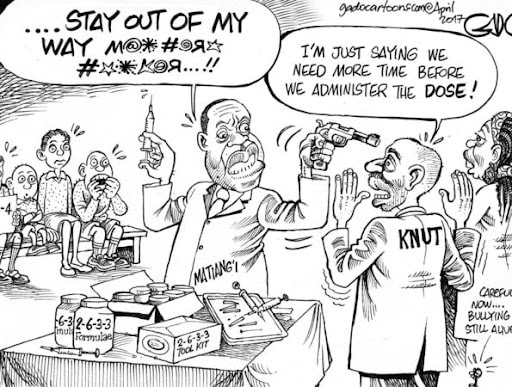 David Livingstone preaching from a wagon. Source: Wikipedia
David Livingstone preaching from a wagon. Source: Wikipedia
At least that’s how I see it today. Back then, as I child, I treated it as the gospel truth that I carried with me through all my student life, up to my doctoral studies. After all, many of the gurus of decolonial thought are Kenyan, with the classic text on decolonizing the mind being written by a Kenyan. There is no way one could get away – especially not in literature – with not quoting them, without it being thought that we were ungrateful to our elders.






 RSS Feed
RSS Feed
